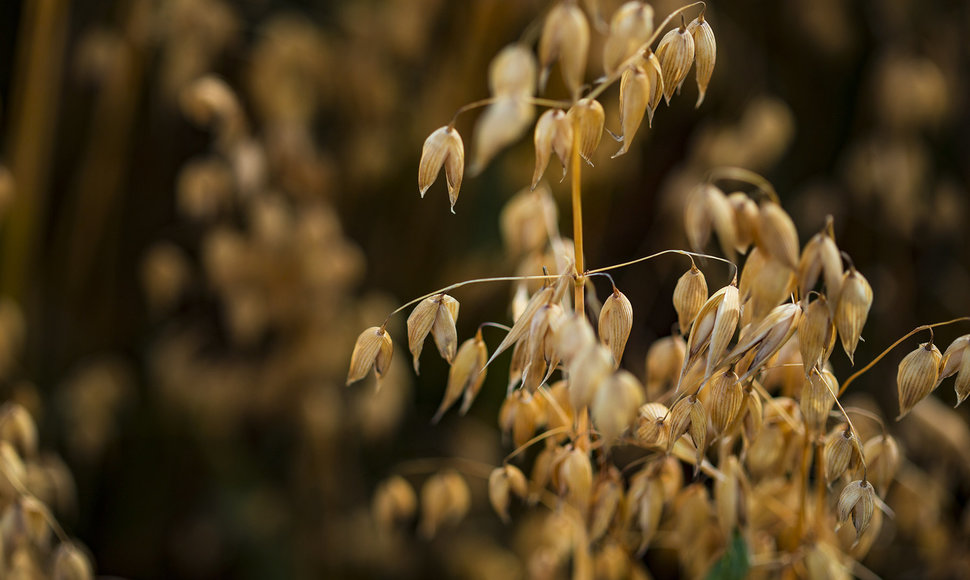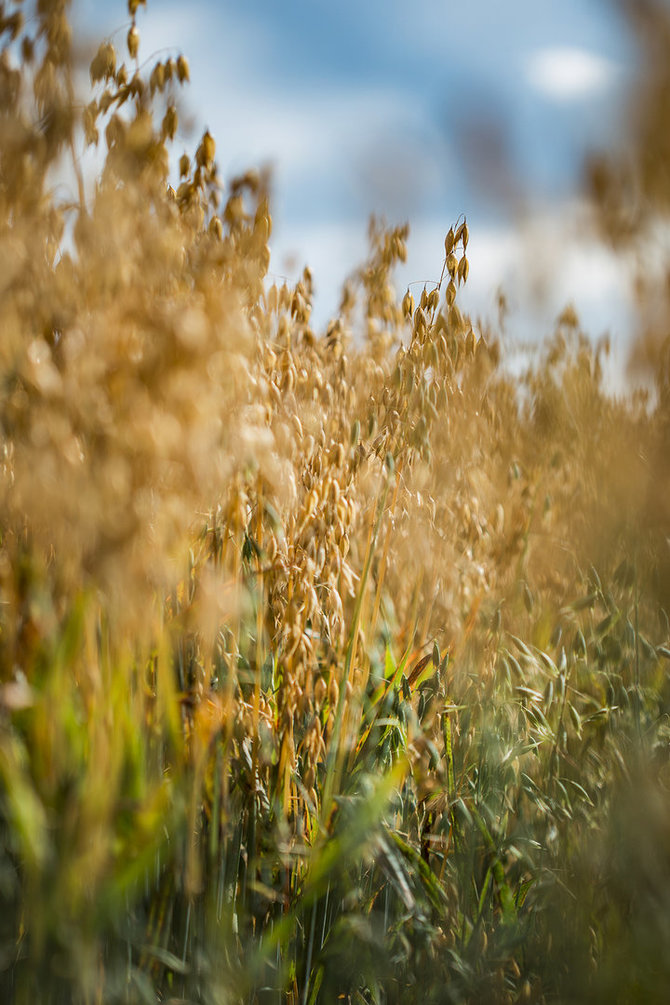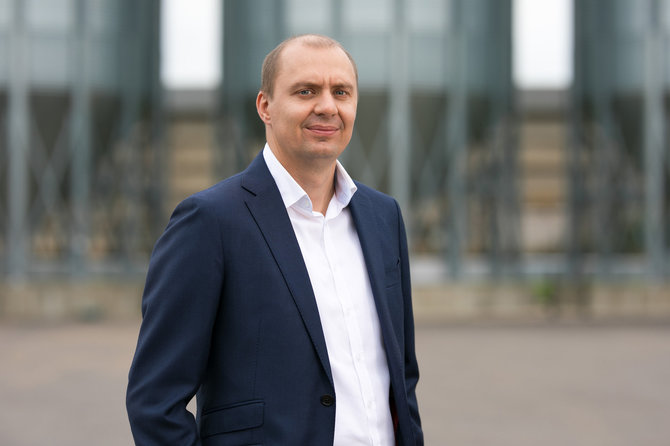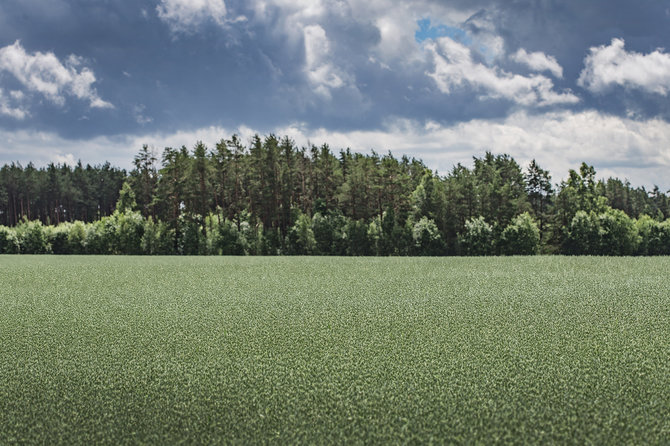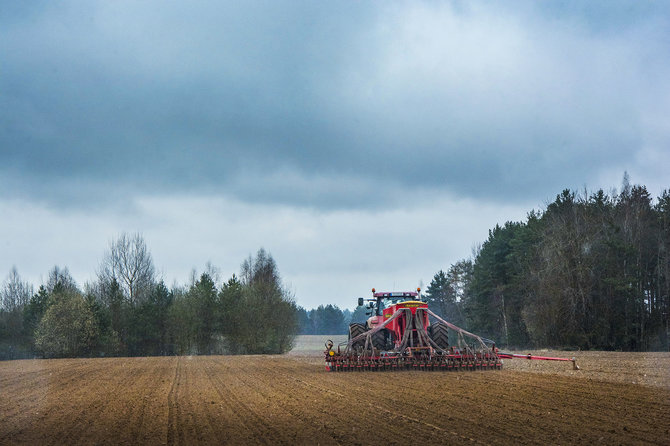Malsena, the grain processing company working on the new variety, say that the analysis of the harvest is very favourable. The new grain will be a unique variety of oats perfectly suited for the Baltic climate, it will be higher-yielding, leaving less waste and requiring less fertilising whilst retaining more nutrients. The project is a result of years of cooperation between the agronomists from Lithuania, Latvia and Finland. The new variety has the potential of causing an upheaval in the agricultural sectors of Lithuania and Latvia as well as reinvigorating the oats production.
Since the announcement of the EU strategy “from farm to table” in May this year, the discontent amongst farmers hasn’t been growing. Brussels is proposing to reduce the use of pesticides by half and fertilisers by at least a fifth by 2030. Farmers claim that this would mean smaller harvests and the rise in prices. However, agronomists and breeders are proposing a solution by introducing new varieties which would cause lower emissions and less need for fertilisation. One of the first varieties to do that will be Herkuless Baltic, which, according to the team at Malsena, is going to be the purest oat in the world.
‘Oats are the sort of grain which yields itself perfectly for the purpose of implementing the new regulation – it is more resistant to various weather extremes, requires less fertilisation and pesticides. But the new variety Herkuless Baltic will go a step further: not only will it meet the EU requirements – it will be the purest, best-quality oats variety in Lithuania. The grain requires smaller quantities of fertilisers and pesticides, the yield is much higher and the risk of crop lodging is smaller. In addition, the processing of this grain results in fewer hulls and less waste which in turn means lower costs of transportation and logistics. We believe that this variety could bring us world-wide recognition too,’ says Arvydas Noreika, sales director at Baltic Mill which owns the Lithuanian grain processing company Malsena, one of the developers of the new oat variety.
Dr Vytautas Liakas, associate professor at Vytautas Magnus University’s Agricultural Academy, agrees that oats are a more sensible choice of grain in the context of the new EU requirements. It does not require as much investment, compared to wheat for example.
Today’s generation of farmers lacks knowledge on how to ensure a high yield of crop without the use of fertilisers or when the allowed quantities are reduced. Our soil is also suffering, it is fast becoming more and more sandy. So we must turn to new varieties of grain which require less fertilising. Oats are particularly suitable for this purpose as they will help the soil retain carbon and many nutrients so it is very beneficial for the symbiosis with other plants. Oats can generally be used in multiple ways, even for multi-cropping,’ explains Dr Liakas.
This year 15 Lithuanian farmers took part in developing Herkuless Baltic. Almost 2,000 tonnes of grain were harvested from 400 hectares of land. The plan for next year is to increase this to around 1,000 hectares.
Important to increase the demand for oats
The biggest challenge for the developers of the new variety of oats is the shortage of potential markets. According to Noreika, it is very important to keep raising the profile of Lithuania and Latvia as producers of oats.
‘The biggest problem is that Lithuania is currently not well-known for this particular grain despite our huge potential in the area. We have every possibility to become as well-known as Finland, ‘the mother of oats’, the reputation of which is the result of the long-term cooperation between the state and the business. We need to aim to recreate that sort of profile and strengthen the image of the Baltics as the region which can produce high-quality crop. We will have to work together with our competitors to overcome this challenge,’ says Noreika.
In Lithuania, oats are most prevalent in regions with the poorest soil but these areas could expand in the future.
‘The popularity of a certain grain is dictated by the market so if farmers are paid more for rapeseed or wheat they will certainly not choose to grow oats. But this situation could change if the market shifted towards paying more for oats so farmers were able to make sufficient profit from it. We are encouraging farmers to cultivate oats as it is one of the best plants for our climate conditions. It can be rotated with other grains such as wheat because oats leave the soil full of carbon and there are no common diseases. Despite this, farmers are still sceptical, sometimes it is due to the lack of knowledge or the willingness to learn,’ says prof. Liakas.
Currently oats are cultivated across the area of around 70,000 - 100,1000 hectares in Lithuania. But the expectation is that the new Herkuless Baltic variety will change the map of the Lithuanian grain cultivation and the crop fields will expand in the future.
Lots of nutrients
Noreika believes that despite the scepticism of the Lithuanian farmers, oats have a huge potential. The popularity of this grain has been rising due to the recent tendencies such as gluten- and lactose-intolerance and the high amounts of beta-glucans and nutritional value in oats.
‘Today our soil is being utilised to the maximum to achieve the main goal which is tonnes and tonnes of grain. This means that the amount of minerals in the soil – and therefore in the grain too – is falling. But thanks to the new technologies being developed currently we can breed varieties which contain more nutrients, grains that only take what they need most from the soil. Our aim is to supply our customer with the most nutritious and beneficial product which is driving our current efforts to ensure that next year’s harvest of Herkuless Baltic contains even more vitamins, selenium, minerals and beta-glucans than other varieties of oats,’ says Noreika.
The new variety of oats is part of the overall strategy of the Baltic Mill group of companies to operate a sustainable business and provide Lithuanian produce. The developers of the new grain hope that it will soon dominate the Group’s portfolio of oat products. The next five years should see the crop fields in Lithuania expand to almost 3,000 hectares after which the variety will be commercialised.
